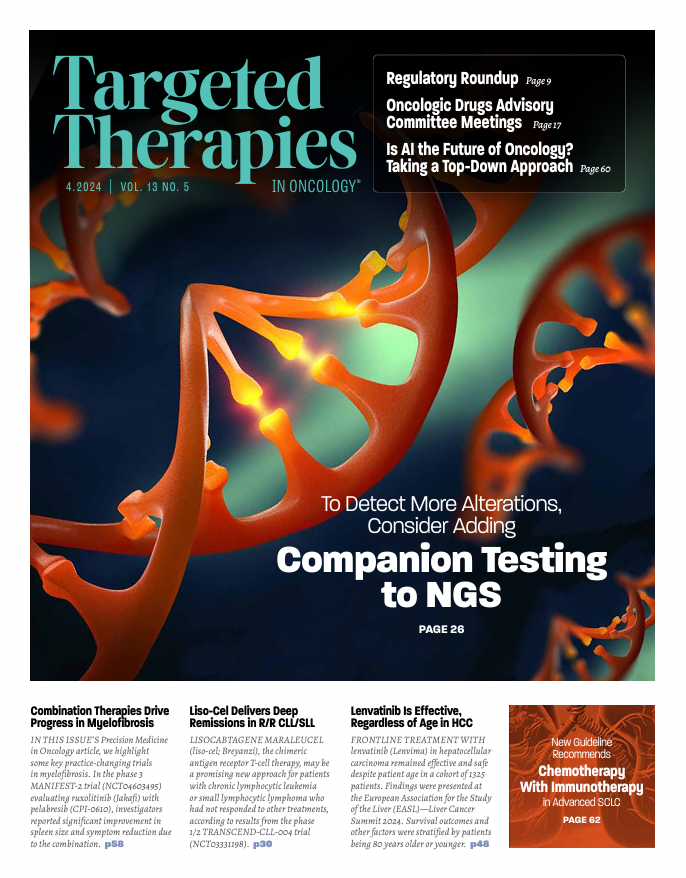In the fast-paced field of oncology, integrating clinical trials into patient care is a necessity for the advancement of cancer treatment. Clinical trials play a pivotal role in developing effective therapies, yet their integration is challenged by issues such as insufficient reimbursement structures, misaligned incentives, physician burnout, and a complex regulatory environment. These barriers contribute to what I call the “clinical trial enrollment paradox,” where enrollment rates remain critically low despite the availability of trials.
Behind the Trial Enrollment Paradox
Data from the National Cancer Database between 2004 and 2015 show that among 12 million patients treated for 46 different cancers, fewer than 0.1% were enrolled in clinical trials.1 This contrasts with the estimated 19.3 million new cancer cases (18.1 million excluding nonmelanoma skin cancer) and 10.0 million cancer deaths (9.9 million excluding nonmelanoma skin cancer) that occurred in 2020.2 In addition, 60% or more of these trials are terminated prematurely because of insufficient enrollment.3
Deepening the Discussion
In addressing the challenges of clinical trial enrollment, it’s important to also consider the broader context in which these trials occur. Factors such as socioeconomic disparities, geographic limitations, and cultural barriers play a significant role in patient access to trials. Addressing these requires not only systemic changes within the health care system but also a deeper understanding and addressing of the social determinants of health.4
Barriers to Clinical Trial Enrollment
Oncology workforce shortage: The oncology workforce is currently facing a significant shortage. This leads to challenges in managing patient loads and limits the capacity to identify and enroll patients in appropriate clinical trials.
Considering trials as a last resort: A common misconception is that clinical trials are only for patients who have exhausted all other treatment options. This view delays trial enrollment and deprives patients of potential early access to cutting-edge therapies.
Interoperability and information issues: The fragmentation and lack of interoperability in electronic health records result in scattered and inaccessible trial information. This is compounded by instances of information blocking and lack of standardized protocols for sharing trial data.
Network restrictions and insurance limitations: Patients are often constrained by their health care networks and insurance policies, which limit their access to trials outside their immediate health care system.
Misaligned incentives and administrative burdens: The time and administrative burden involved in enrolling patients in trials does not often align with the financial incentives of health care providers. This misalignment discourages active participation in trial recruitment.
Furthermore, the role of patient advocacy groups in bridging the gap between patients and trials cannot be overstated. These groups provide invaluable support and information, helping to navigate the often complex landscape of clinical trials. Their involvement is crucial in ensuring that patient voices are heard and their needs are addressed in the trial design and implementation process.
The advent of personalized medicine and targeted therapies has transformed the landscape of cancer treatment and clinical trials. This shift necessitates a corresponding change in the way trials are designed and conducted, with a greater emphasis on biomarker-driven trials and precision medicine approaches. Embracing these advancements will improve trial enrollment and efficacy leading to more effective and tailored treatment options for patients. Currently, even a malignancy with many targeted therapies such as non–small cell lung cancer is under genotyped despite that patients live longer on biomarker targeted therapy.7 To accomplish this improvement, we must ensure that biomarker testing is performed in those with advanced solid tumors, particularly with broad next-generation sequencing platforms, covered by insurance and ordered timely.
Multipronged Strategy
By addressing the barriers through technological innovation, policy reforms, educational initiatives, and a deeper understanding of the broader social and medical context, we can unlock the full potential of clinical trials in advancing cancer treatment. This approach benefits patients through access to innovative therapies and contributes significantly to the overall advancement of oncology care and potentially mitigates physician burnout by leveraging the network effects.
Dr Loaiza-Bonilla is the cofounder and chief medical officer at Massive Bio, as well as the medical director of oncology research at Capital Health Medical Center– Hopewell in Pennington, New Jersey.
REFERENCES:
1. Zaorsky NG, Zhang Y, Walter V, Tchelebi LT, Chinchilli VM, Gusani NJ. Clinical trial accrual at initial course of therapy for cancer and its impact on survival. J Natl Compr Canc Netw. 2019;17(11):1309-1316. doi:10.6004/jnccn.2019.7321
2. Sung H, Ferlay J, Siegel RL, et al. Global Cancer Statistics 2020: GLOBOCAN Estimates of Incidence and Mortality Worldwide for 36 Cancers in 185 Countries. CA Cancer J Clin. 2021;71(3):209-249. doi:10.3322/caac.21660
3. Kurnaz S, Loaiza-Bonilla A. Cancer clinical trials: the Where’s Waldo? puzzle no one wants. Medicine Maker. December 15, 2022. Accessed March 7, 2024. https://tinyurl.com/4ccm7jez
4. Loaiza-Bonilla A. Health equity barriers in oncology trials. PharmExec.com. February 3, 2023. Accessed March 7, 2024. https://tinyurl.com/56tpj7z7
5. CancerX member organizations. CancerX. Accessed March 7, 2024. https://tinyurl.com/5dax724j
6. Harvey RD, Miller TM, Hurley PA, et al. A call to action to advance patient-focused and decentralized clinical trials. Cancer. Published online January 9, 2024. doi:10.1002/cncr.35145
7. Bhandari NR, Hess LM, He D, Peterson P. Biomarker testing, treatment, and outcomes in patients with advanced/metastatic non-small cell lung cancer using a real-world database. J Natl Compr Canc Netw. 2023;21(9):934-944.e1. doi:10.6004/ jnccn.2023.7039


